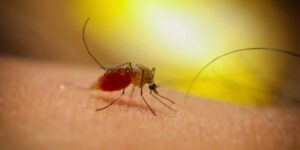Bolivia
The small yet varied country of Bolivia, in central South America, has a varied landscape which includes the rainforest of the Amazon Basin, the Atacama Desert and the majestic Andes Mountains. The administrative capital, La Paz, is on the Altiplano plateau in the Andes, close to Mount Illimani and South America’s largest lake, Lake Titicaca. This landlocked country is a good option for travellers who want to see the wonders of South America without covering a vast distance geographically.
Make an online bookingTravel Health Information
Highly recommended
vaccinations for travelling here
Advisory
vaccinations for travelling here
The Zika Virus is a risk in Bolivia. Women who are pregnant or planning to become pregnant should not visit the country, and other travellers should take suitable steps to prevent mosquito bites and other exposure during and after the trip.
Public hospitals in Bolivia tend to be crowded, and are not of the same standard as UK hospitals. As a visitor to the country you will not be entitled to free medical treatment, so you should ensure your travel insurance will cover you for all necessary treatment, including repatriation in the event of an emergency. As well as making sure you have all the recommended vaccinations and treatment for preventable diseases, you should also be aware of sanitation and hygiene, especially around food and drink, to minimise your risk of developing a sickness bug or food poisoning.
Some areas of Boliva are at high altitude, including the capital, La Paz. Know the signs of altitude sickness, which include headaches and vomiting, heart palpitations and disorientation. If you are trekking, stay with an experienced guide at all times, carry a means of summoning help with you, and seek urgent medical assistance if you suspect you or a member of your party may be suffering from altitude sickness.
Most incidences of theft or crime in Boliva are opportunistic, and violence against tourists is rare. Keep your luggage with you while you’re travelling, and try not to arrive in a busy destination after dark. Use common sense when it comes to your personal safety, and you shouldn’t encounter any problems.

Your nearest CityDoc clinic
Find a clinic

Destination Information for Bolivia
Bolivia’s cities were founded by the Spanish and are as diverse as the country itself. La Paz is an intoxicating mix of traditional and modern culture, with contemporary restaurants and bars lining the winding backstreets. Sucre is the constitutional capital and is more of a monument to the past, with steep cobbled streets and whitewashed buildings. Santa Cruz is the most affluent city in Bolivia, famous for its vibrant and colourful carnival.
For travellers looking for an adventure, an unspoilt and uncommercialised land to explore, Bolivia presents the perfect opportunity. With remote national parks, hidden villages and towns in the mountains and valleys and stunning mountainous landscapes, this is a natural wonderland. The people are friendly and travel around the country is straightforward, and while options for tourists are present, Bolivia is not so popular that the culture and identity of the country is diluted by tourism.
Visitors to Bolivia are likely to need travel vaccinations. Your specific needs will be dependent on what you have planned for your trip and the region you’re visiting, so book a consultation and one of our nurses can use your itinerary to identify which vaccinations you require. Yellow fever may be a requirement along with tetanus, typhoid and hepatitis A vaccinations. This country is also high-risk for Rabies and Hepatitis B which the nurse will discuss with you.
Infections and Outbreaks frequently change from country to country and by attending our clinics you will be given the most up to date clinical and safety advice from our team of specialists. Our advice to you often includes aspects such as:
- Food and water hygiene
- Insect and animal bite avoidances
- Personal safety
- Sexually transmitted infections
- Sun protection
- Altitude sickness
Travel news
Helpful travel news, tips and advice for travelling around the world

Water Hygiene While Travelling: What You Need to Know
Get the facts straight: Common myths about water hygiene while travelling debunked here.

Mpox- How dangerous is it?
With the recent WHO announcement regarding the outbreak of Mpox in Africa there has been a concern of its transmission to other countries.

Pregnancy and Malaria
A malaria infection can cause complications during the pregnancy to mother and the baby.
For the latest government travel advice
For anyone planning to travel abroad we recommend visiting the following government website for all the latest travel guidance and advice.
Travel health enquiries
For all travel health enquiries, simply contact us below.



